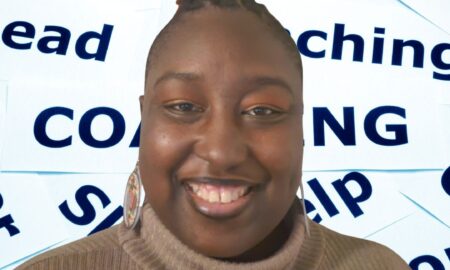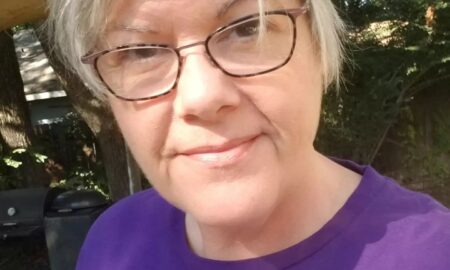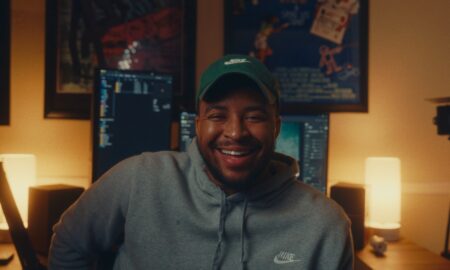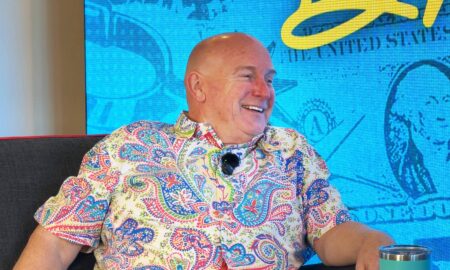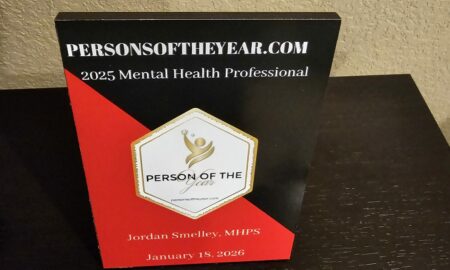

Today we’d like to introduce you to Amy Whitt.
Amy, let’s start with your story. We’d love to hear how you got started and how the journey has been so far.
As a marine biologist raised in a small, landlocked town in the Mississippi Delta region of Arkansas, I understand the importance of following your passions regardless of regional, social, or gender challenges.
My interest in marine biology sparked at a young age. I don’t exactly remember when or how this fascination developed, but since I did not get to directly experience marine life while growing up in Arkansas, it probably had something to do with my obsessively watching a variety of marine-related movies…everything from The Little Mermaid to Jaws. What I do recall is the exact moment I knew I wanted to become a marine biologist. I was 12 years old, and my family and I traveled to Boston to visit relatives. They knew how much I was crazy about marine animals, particularly dolphins, whales, and other marine mammals, so they arranged for us to go whale watching. On those cool, summer waters of Massachusetts Bay, I saw my first wild marine mammal–a humpback whale! That was the moment. I was hooked.
I immediately started reading as much as I could about marine mammals and what I could do to help these animals survive the harsh conditions that we humans put them through. From entanglement in our fishing gear to ingestion of our plastic waste, we do not make life easy for these fascinating creatures. As local high school teachers in our tiny rural town, my parents did not know much about the career path of a marine biologist, but they fully supported all of my efforts. They donated money on my behalf to a nonprofit organization so that I could adopt a humpback whale named Fringe and contribute to research and conservation of her and her cohorts. They also financially supported me through my volunteer internships at Mote Marine Lab and Texas A&M University at Galveston to gain real-world experience in marine mammal science while earning my Bachelor of Science degree in biology at Lyon College in Batesville, Arkansas.
While attending graduate school at the Nicholas School of the Environmental at Duke University in North Carolina, I finally got to move to the coast. The small, coastal community of Beaufort, North Carolina is home to Duke’s Marine Lab where I studied coastal environmental management with around 30 other students, many of which also originated from landlocked states. With a Master of Environmental Management (M.E.M.) degree, I sought jobs that would enable me to help conserve and manage the protection of whales, dolphins, and other marine wildlife. Lo and behold, my job search brought me to another landlocked community–Plano, Texas. Although much larger than my hometown of around 1,200, I quickly felt right at home, probably because I was working with other marine biologists for a small, family-owned environmental consulting business. Our small marine science department provided unique and specialized services including helping the U.S. Navy to protect marine wildlife and habitats during their training and tactical operations.
I had no idea that I could research and protect marine mammals while also living close to my family in Arkansas. It was a dream come true until that dream turned into a stressful nightmare of corporate unrest and turmoil during The Great Recession and the selling of our small company when the owners retired. After four years of watching many of my colleagues be laid off, my time came. It wasn’t completely unexpected considering the difficult financial times and growing pains of assimilating into a different corporate structure, but it still came as a surprise. I had given nine years of strenuous efforts while growing from a junior scientist to a senior scientist, project manager, and program manager. What was I going to do now? I wanted to be an asset and not just an employee.
For the first time in my life, I really felt unsure of my future and my career path. I actually thought that being a marine biologist may just be too hard, but I was not ready to give up yet. My sister gave me the courage that I needed. She convinced me that I could do this on my own, that I didn’t need another company, and that I could finally have the flexibility to do what I want with who I want. I had already spent the past four years watching and supporting her through the start of her own business, an immigration law practice in Frisco, TX, so I knew the struggles that new business owners face. Although I wasn’t quite ready for those challenges and I often tried to talk myself out of it by thinking I’m too young to run a business, I dove into this slightly new career path as a marine biologist AND an entrepreneur. In September 2014, I officially registered my environmental consulting business, Azura Consulting LLC, and my first client was the company that had laid me off.
During the past 14 years of working as a professional marine biologist, I have focused on minimizing human impacts to marine species and habitats. From studying whales and dolphins off South America to assessing the occurrence of marine mammals in the Mediterranean Sea, I have helped a variety of clients including the National Oceanic and Atmospheric Administration (NOAA), the U.S. Navy, the oil and gas industry, and offshore renewable energy developers, to understand where, when, and why marine mammals and other protected species are in their target areas. I have helped many of these clients develop plans to minimize and hopefully eliminate any potential harm or harassment to these species during their operations. Through these projects, I have studied marine mammals and sea turtles during over 530 days of shipboard surveys and over 180 hours of aerial surveys and have spent countless hours analyzing data and writing reports.
Although my passion for marine science began with and continues to involve studying and protecting marine mammals, I also focus my research and conservation efforts on other marine resources that are also protected under Federal and State laws. I have studied and helped protect a variety of marine life and habitats, including sea turtles, seabirds, corals and coral reefs, and fish and Essential Fish Habitat, from human impacts. Through these studies I have assessed the environmental damage, including the damage that the Deepwater Horizon oil spill caused to oysters, dolphins, turtles, and marshes in the Gulf of Mexico and the damage that Hurricanes Maria and Irma caused to coral reefs in Puerto Rico.
I enjoy sharing my “anything is possible” attitude with the youth in my local community. Because of my own personal understanding of the disconnect between inland communities and marine life, I have a special interest in raising awareness of ocean resources and issues within landlocked communities and promoting marine science career opportunities for underrepresented individuals. Therefore, environmental education and outreach is not only a service provided by Azura’s team but is also an integral part of Azura’s mission.
We’re always bombarded by how great it is to pursue your passion, etc – but we’ve spoken with enough people to know that it’s not always easy. Overall, would you say things have been easy for you?
One of the greatest struggles I have faced with starting Azura is transitioning from an office environment filled with colleagues who were also good friends to my home office without constant in-person interactions, which my extrovert side craves. I’ve learned to prioritize phone calls and other interactions with colleagues and also took on some part-time work which gets me out of my home office and allows me a nice break from the business world. My favorite part-time job has been teaching fitness classes at my local gym.
I have also struggled with the natural ebb and flow of consulting work. I try to make good use of any slow periods by really focusing on marketing and proposal writing. In this line of work, we must continuously write proposals to win contracts/grants for our projects. Proposal writing is probably the least favorite part of my job, but it is critical to the survival of any consulting business. You must “play to win”. I remind myself of that every time I spend weeks of my life preparing a proposal for an award I am likely not to win. During my nine years of consulting experience prior to Azura, I wrote numerous proposals and lost more than I won. That is the reality. Although I was used to losing proposals, I was surprised at how these losses affected me differently now that I was on my own. Those first few losses for Azura felt more personal. I had to learn how to cope with losing all over again.
So, as you know, we’re impressed with Azura Consulting – tell our readers more, for example what you’re most proud of as a company and what sets you apart from others.
Azura’s primary services are focused on natural resources and the environment, professional writing and editing, and educational outreach and communication. We strive to empower people and organizations to meet their goals while also conserving natural resources and minimizing impacts to the environment.
Our environmental consulting services focus on the research, conservation, and management of protected species, populations, and habitats. Our diverse team of expert scientists and environmental managers specializes in marine mammal biology, sea turtle biology, ornithology, fish and fisheries management, coral reef ecology, and marine acoustics. Our services include scientific research and analysis, monitoring and mitigation, marine acoustics, marine resources documentation, environmental compliance, environmental planning/permitting, and scientific diving.
Azura’s team also includes professional editors who enjoy helping others communicate their work and ideas in a clear and concise manner. We have written, edited, and reviewed numerous technical documents for various clients, colleagues, friends, and peer-reviewed scientific journals. Our professional editing services are precisely tailored to both individuals and businesses. From resumes to government contract proposals, we provide the strict attention to detail to ensure that you present the best form of yourself to your audience.
We also aim to foster environmental stewardship and an excitement for science within our communities, thereby enriching the lives of people of all ages and backgrounds. I’m proud that we give back to our community by sharing our knowledge and love for the environment with others. In addition to bridging regional gaps in marine science education, we strive to enhance science literacy and promote environmental stewardship and communication across gender and social boundaries. Because girls and minorities are still poorly represented in STEM (science, technology, engineering, and math) careers, we work with local groups to engage girls and minorities in marine science and motivate them to pursue STEM careers. Through our partnerships with Girls Inc. of Metropolitan Dallas and the University of Texas at Dallas, we have developed marine science curricula for K-12 students and explored methods of adding marine components to existing science outreach projects in the DFW area. We have also promoted confidence in science via our mentorships with local girls and minorities and our internship program for college students, mostly females, who are interested in pursuing science careers and can benefit from real-world experiences in a science field.
So, what’s next? Any big plans?
We are looking forward to expanding our client base and continuing to expand our service areas through enhanced training and work experiences and partnerships with other organizations that share our commitment to natural resource conservation and environmental education. We plan to grow but remain a small business so that we can still offer “small-town” customer service which our clients desire.
We are also developing new projects and programs. For example, this summer we are launching our new Dallas Dolphin Research Program, a unique opportunity for DFW kids ages 11-13 to learn about marine biology alongside real marine biologists. We can’t bring wild dolphins to Dallas, but we can escort Dallas kids to dolphins and show them how marine biologists study these animals in their wild, natural habitat. During this 3-week program and partnership with The Dolphin Communication Project (DCP), kids will not only learn about marine mammal ecology in an informal classroom setting in the DFW area but will also conduct actual dolphin research with scientists in The Bahamas. By working with DCP and Azura scientists, these students will learn that their career potential is not limited by their social status, physical location, or gender.
Contact Info:
- Website: azuraco.com
- Email: info@azuraco.com
- Facebook: https://www.facebook.com/azuraconsulting/
- Twitter: https://twitter.com/AzuraConsulting
- Other: https://www.linkedin.com/in/amy-whitt-25a04b6/














Getting in touch: VoyageDallas is built on recommendations from the community; it’s how we uncover hidden gems, so if you know someone who deserves recognition please let us know here.










